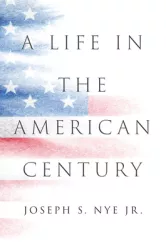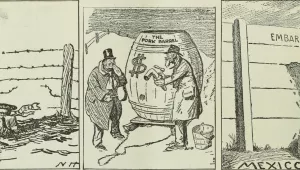There's long been a theory that peacetime is bad for maintaining the global order — turns out a war now and then does a nation good.
A striking trend in contemporary world politics is the apparent erosion of political unity in so many different places. In the Middle East, we've seen the upheavals of the Arab Spring and the continuing bloodbaths in Syria, Libya, Yemen, and elsewhere. In Europe, support for the European Union continues to drop, Great Britain may vote to leave it, and Scotland might still decide to exit the United Kingdom. Here in the United States, we have a level of bitter partisanship not seen for many decades, the two main political parties are themselves deeply divided, and the presumptive GOP presidential candidate is a rank amateur (in several senses of that term). To say "the center cannot hold" seems like an understatement these days.
What's going on here? Some people believe today's fractious politics is a consequence of globalization, which has accelerated the pace of change, threatened traditional cultural norms, and left millions of people feeling marginalized. Other observers blame economic policies that have enriched the One Percent and insulated them from their own misdeeds, leaving the rest of us to forage for the crumbs from their table. Or perhaps the digital revolution and new media are the real culprits, with the combination of cable TV, Twitter, and other modern means of communication lowering barriers to entry, coarsening the national dialogue, spreading extremism, and making the nastiest forms of political innuendo seem legitimate....
Continue reading (log in may be required): http://foreignpolicy.com/2016/06/17/the-case-against-peace-syria-europe-brexit-donald-trump/
Walt, Stephen. “The Case Against Peace.” Foreign Policy, June 17, 2016




